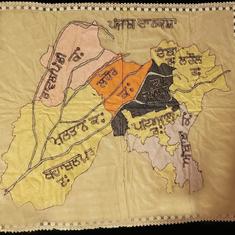On August 6, Indian Parliament passed two resolutions that obliterated the special status and notional autonomy that Jammu and Kashmir had enjoyed for 70 years.
The resolutions proposed by the Bharatiya Janata Party-led government hollowed out Article 370 of the Indian Constitution, effectively nullified the Jammu and Kashmir constitution and reorganised the state of Jammu and Kashmir into two Union territories.
Parliament’s actions have prompted two legal challenges in the Supreme Court. Last week, two petitions were moved by Kashmiris that have called upon the court to strike down the changes to Article 370 and the decision to convert the state into Union territories.
Parliament’s decision, the petitions claim, has violated the basic structure of the Constitution and done irrevocable damage to India’s federal structure. In the past, the Supreme Court had declared that the basic structure is beyond the Parliament’s powers to alter.
Legal challenges
On Thursday, National Conference Lok Sabha members Mohammad Akbar Lone and Hasnain Masoodi moved the Supreme Court with a petition under Article 32 of the Constitution. This article in the Constitution allows the Supreme Court to issue any order to protect the fundamental rights of citizens.
In the petition, the MPs have made four significant points.
First, the presidential order on August 5 that substituted the words “governor” for “the government of Jammu and Kashmir” and the “legislative assembly” for the “constituent assembly” was inherently flawed. The president cannot alter Article 370 using powers granted under the same article, the MPs said.
In the order, the president had used Article 367, an interpretative provision in the Indian Constitution, to make the substitutions for the “government” and “constituent assembly of Jammu and Kashmir”.
The petition said:
“Presidential Order C.O. 272 uses Article 370(1)(d) – which was meant to apply other provisions of the Constitution to the state of Jammu and Kashmir – to alter Article 370 itself, and thereby the terms of the federal relationship between the state of Jammu and Kashmir and the Union of India.”
Second, the petition claimed that since the presidential order substituting the “governor” for the “government of Jammu and Kashmir” was issued during president’s rule, the concurrence of the governor to the changes made to Article 370 amounted to the Centre taking approval from itself to remove the state’s special status and reorganise it into Union territories.
This was because the president acts on the aid and advice of the Centre and the governor is an agent of the president in the state. “The Presidential Order takes cover of a temporary situation, meant to hold the field until the return of the elected government, to accomplish a fundamentally, permanently, and irreversibly alteration of the status of the State of Jammu and Kashmir without the concurrence, consultation or recommendation of the people of that State, acting through their elected representatives,” the petition said.
Further, the MPs said by making all the provisions of the Indian Constitution applicable in perpetuity to Jammu and Kashmir, the presidential order undermines one of the basic purposes of Article 370. This article is aiming at felicitating facilitate the extension of constitutional provisions to the state in an incremental and orderly manner, based upon the needs and requirements at a particular time, without dismantling the state constitution.
Lastly, the petition said that in substituting “constituent assembly” with “legislative assembly” to give concurrence to the move to hollow out Article 370, the presidential order has assumed that the legislative assembly has such powers. This, the petition claimed, was wrong because Article 147 of the Jammu and Kashmir Constitution prohibits such a move.
The Article makes it clear that any changes to the Jammu and Kashmir Constitution needs the approval of two-thirds of the members of the legislative assembly.
Another petition moved last week by Kashmiri lawyer Shakir Shabir makes similar contentions. It said that the governor does not have the powers to make unilateral decisions on behalf of the people of Jammu and Kashmir without consultations as he is an unelected representative in the state.










